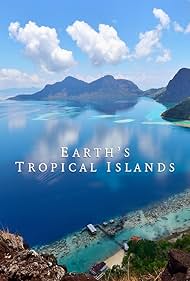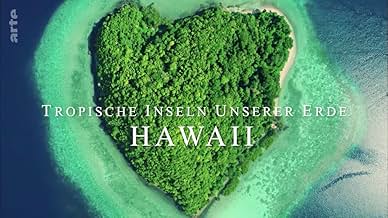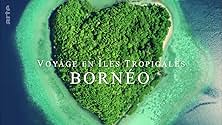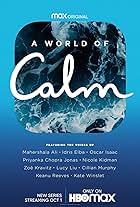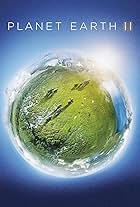Cameras follow the amazing wildlife and human castaways found on three of the world's most exotic tropical islands. Narrated by David Harewood.Cameras follow the amazing wildlife and human castaways found on three of the world's most exotic tropical islands. Narrated by David Harewood.Cameras follow the amazing wildlife and human castaways found on three of the world's most exotic tropical islands. Narrated by David Harewood.
Browse episodes
Storyline
Featured review
My love for documentaries, especially nature ones, is probably quite well known now. When it comes to nature documentaries to me David Attenborough will always reign king when it comes to output and presenting, but there have been numerous documentaries without his involvement that are just as great in their own way while not quite being milestones. There have been quite a number of narrators/presenters that do a more than worthy job on their own merits.
'Earth's Tropical Islands' didn't turn out disappointing and was refreshing after not being too impressed by 2019's 'Serengeti' seen a few months back. Was very intrigued in seeing more of the islands of Madagascar, Borneo and Hawaii, as well as their inhabitants, and had high expectations that were met luckily. Is 'Earth's Tropical Islands' one of the best documentary series ever made? No. Is it well worth watching? Absolutely, a near must see actually.
Other documentaries have more of a mix of the familiar and unfamiliar perhaps and perhaps have more information and footage that has more of the surprise factor.
But really there is so little to fault 'Earth's Tropical Islands'. It looks beautiful, with lots of vivid colour (especially in "Borneo"), scenery that is a mix of stunning and suitably cruel (in all three episodes equally, have yet for instance to see coral reefs captured on film badly) and much of the photography was near-cinematic (especially in "Hawaii", like with the tectonic plate). The music didn't strike me as melodramatic, too jaunty or intrusive.
While the writing for the narration didn't quite have the surprise factor of other documentaries, it was still educational and was engagingly and accessibly written. Nothing was heavy-handed, corny or patronising. Personally had no problem with David Harewood's delivery of it, which to me engaged and was sincere. While there are some familiar animals, such as humpback whales, lemurs and the obligatory orangutan, there are also ones not so familiar to me, such as the tenrecs and the rare sun bears.
It was great to see too a brief look at the people of Ampotaka in "Madagascar", and standout sequences and behaviours included the tenrecs' unique calling to the young in "Madagascar", that between the humpback whales in "Hawaii" and the sporting contest. Some unique behaviours too, including the ingenious way of the frog calling to their mate in "Borneo", the tenrecs' call to the young, the somersaulting Manta rays ("Hawaii") and the woolly bat and the pitcher plant relationship ("Borneo").
Overall, excellent series that deserves a wider audience. 9/10
'Earth's Tropical Islands' didn't turn out disappointing and was refreshing after not being too impressed by 2019's 'Serengeti' seen a few months back. Was very intrigued in seeing more of the islands of Madagascar, Borneo and Hawaii, as well as their inhabitants, and had high expectations that were met luckily. Is 'Earth's Tropical Islands' one of the best documentary series ever made? No. Is it well worth watching? Absolutely, a near must see actually.
Other documentaries have more of a mix of the familiar and unfamiliar perhaps and perhaps have more information and footage that has more of the surprise factor.
But really there is so little to fault 'Earth's Tropical Islands'. It looks beautiful, with lots of vivid colour (especially in "Borneo"), scenery that is a mix of stunning and suitably cruel (in all three episodes equally, have yet for instance to see coral reefs captured on film badly) and much of the photography was near-cinematic (especially in "Hawaii", like with the tectonic plate). The music didn't strike me as melodramatic, too jaunty or intrusive.
While the writing for the narration didn't quite have the surprise factor of other documentaries, it was still educational and was engagingly and accessibly written. Nothing was heavy-handed, corny or patronising. Personally had no problem with David Harewood's delivery of it, which to me engaged and was sincere. While there are some familiar animals, such as humpback whales, lemurs and the obligatory orangutan, there are also ones not so familiar to me, such as the tenrecs and the rare sun bears.
It was great to see too a brief look at the people of Ampotaka in "Madagascar", and standout sequences and behaviours included the tenrecs' unique calling to the young in "Madagascar", that between the humpback whales in "Hawaii" and the sporting contest. Some unique behaviours too, including the ingenious way of the frog calling to their mate in "Borneo", the tenrecs' call to the young, the somersaulting Manta rays ("Hawaii") and the woolly bat and the pitcher plant relationship ("Borneo").
Overall, excellent series that deserves a wider audience. 9/10
- TheLittleSongbird
- Oct 18, 2020
- Permalink
Details
- Release date
- Countries of origin
- Official site
- Language
- Also known as
- Earth's Paradise Islands
- Production companies
- See more company credits at IMDbPro
Contribute to this page
Suggest an edit or add missing content

Top Gap
By what name was Earth's Tropical Islands (2020) officially released in Canada in English?
Answer